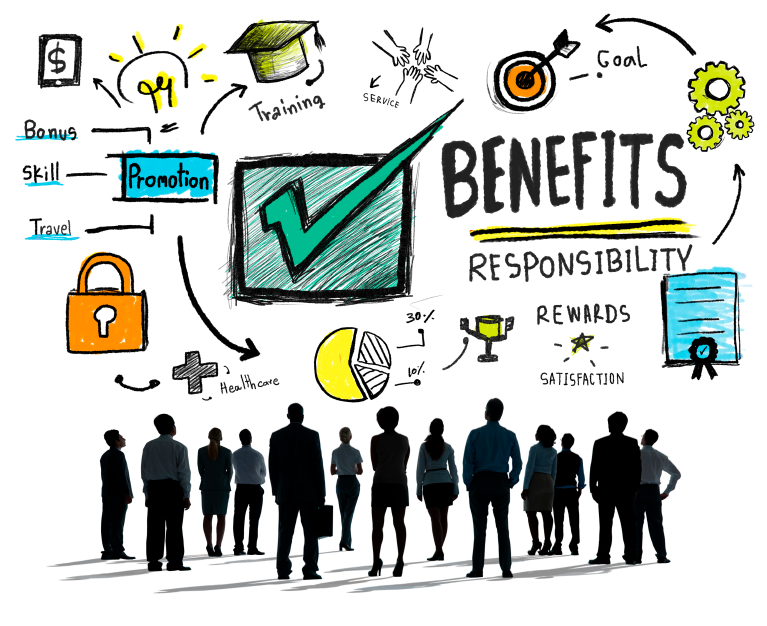 |
Harris Poll recently conducted the Q3 2015 U.S. Employment Confidence Survey on behalf of Glassdoor. The survey was given to over 2,000 adults residing in the United States. The purpose of the survey is to track four pillars of employee confidence:
- How optimistic survey takers are about the job market;
- What expectations about pay that survey takers have;
- How secure participants feel about their jobs; and
- Whether business feel their outlook is positive.
Some of the highlights of the survey include:
- Seventy-nine percent of those polled would rather have better benefits than better pay, if given a choice.
- Eighty-two percent of women would take better benefits over pay versus 76% of men.
- Those who have children in the household feel that perks and benefits are more important than pay increases (89%) versus those who do not have children (73%).
- Seventy-seven percent of homeowners care about perks over pay versus 85% of renters who feel the same way.
It’s the third HR Playbook from BLR®! Read the new guide, The Total Rewards Framework: Build Loyalty, Engagement, and Retention, and find out how to give employees what they most value.
Perks Over Pay: A Function of Age?
Interestingly, age also had a role to play. This chart shows the declining interest in perks and benefits over higher pay as those polled get older:
|
Age |
% that Prefer Perks over Pay |
|
18–34 |
89% |
|
35–44 |
84% |
|
45–54 |
70% |
|
55–64 |
66% |
Benefit Breakdown
Glassdoor asked those who preferred better perks and benefits over better pay to list which perks and benefits were most important. Clearly insurance, vacation, time off, retirement plans, and a flexible schedule are the most important, each performing over 30%.
|
Perk |
% that prefer that perk |
|
Healthcare insurance |
40% |
|
Vacation/Paid time off |
37% |
|
Performance bonus |
35% |
|
Paid sick days |
32% |
|
401(k) plan, retirement plan, and/or pension |
31% |
|
Flexible schedule |
30% |
|
Office perks |
19% |
|
Employee development programs |
19% |
|
Tuition reimbursement |
18% |
|
Employee discounts |
17% |
|
Gym membership or wellness program |
16% |
|
Stock, stock options, and/or equity |
16% |
|
Paid parental leave |
13% |
|
Childcare assistance |
13% |
|
Commuter assistance |
9% |
|
Diversity program |
3% |
Ups and Downs
Glassdoor asked its survey takers whether they felt that there was a positive or negative change at work concerning benefits, perks, and pay. Depending on how they answered, each group was asked specific follow questions.
Of those who said their organization had positive changes:
- Sixty-four percent indicated they were given new perks, new stock, or other compensation. This is up 3% over last quarter.
- Forty percent indicated that their organization is undergoing large-scale hiring. This is about the same as last quarter, but is up 6% over the same quarter last year.
- Twenty-seven percent say that previously removed benefits such as health and dental as well as perks and pay have been restored, which is 7% less than last quarter.
Of those who said their organization had negative changes:
- Fifty-three percent indicated they had changes made to their compensation or had it reduced. This was down 3% over last quarter.
- Thirty-five percent said their individual pay or bonuses were reduced, or they were not given bonuses that they were eligible for, which is up 4% over last quarter.
- Thirty-six percent indicated that employees were being laid off, or had heard of plans to lay off employees, which was down 5% over last quarter.
Rewards are about more than just pay and benefits! Find out everything you need with the HR Playbook, The Total Rewards Framework: Build Loyalty, Engagement, and Retention. Find out more or order here!
Employment Expectations
Part of employment confidence involves whether or not employees feel that they could get a new job if they lost their current one. Of those employed, including self-employed, 54% felt that they could get a new job that matched their abilities, paid about the same as their old job, and that they could do it in 6 months. This is the highest this question has scored since Q1 2009. Twenty-six percent of those polled said they were uncertain they would find a job with the same circumstances within 6 months, and 20% said they didn’t think they could find another job at all.
Among unemployed jobseekers, 40% felt that they could find a job within 6 months that matched their expected pay rate and their experience. This was down from last quarter by 6% but up from last year’s Q3 by 7%.
Sixty percent of employees aged 18–34 were confident they could find another job in 6 months matching the same criteria as the previous questions, while only 44% of those aged 55–64 years felt the same way. Similarly, 61% of those who make over $100,000 a year are equally confident, while 48% of those who make between $50,000 and $75,000 are confident, and 47% of those that make less than $50,000 are confident.
Tomorrow we’ll have more results from Glassdoor’s survey, plus an introduction to BLR’s HR Playbook: The Total Rewards Framework: Build Loyalty, Engagement, and Retention.
